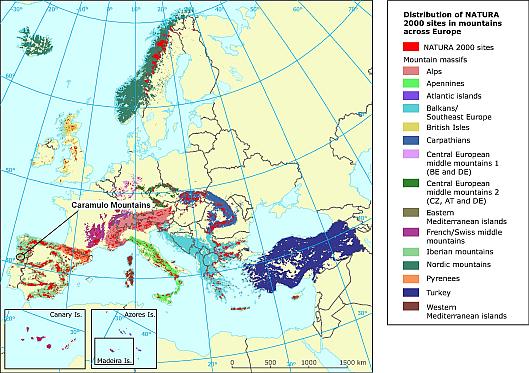Chapter I: Introduction
Table of Contents
- Chapter I: Introduction
- Introduction
Introduction
During summertime, the Balkan Peninsula, Romania, Bulgaria, Italy, Iberian Peninsula and some spots in central Europe experience catastrophic wildfires. The ignition of a large number of forest fires is mainly caused by human action, namely negligence or arson. Several factors contribute to the spread of fires, such as human acts, topography, vegetation and meteorological conditions.
 |
| Figure 1: TVI24 online - photo from the Portuguese news agency LUSA. |
From 20 August to 2 September 2013 the Caramulo Mountains in central Portugal (Figure 2) experienced a series of three large and devastating forest fire events that caused a total burned area of about 9415.5 ha and 6 casualties. The Caramulo fires had overwhelming ecological, social and economic consequences that will be felt for several years. They were the result of a complex combination of variables from human factors to adverse meteorological and topographic conditions. This case study will address these variables of the Caramulo fires, which lead to environmental disaster.
 |
| Figure 2: Distribution of Natura2000 sites across European mountain massifs (2007). Source: http://www.eea.europa.eu/legal/copyright. |